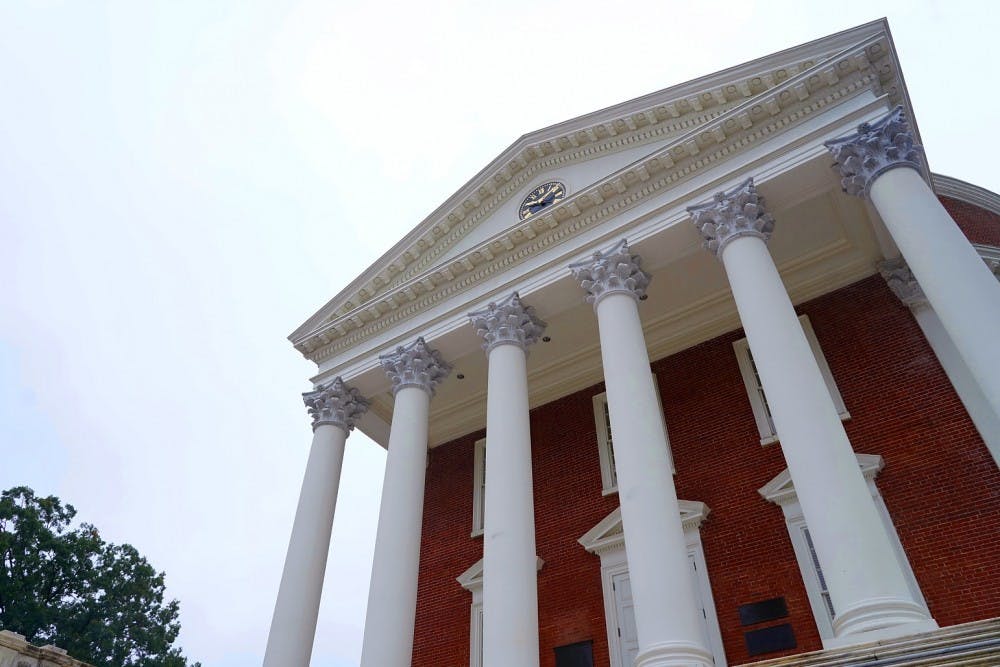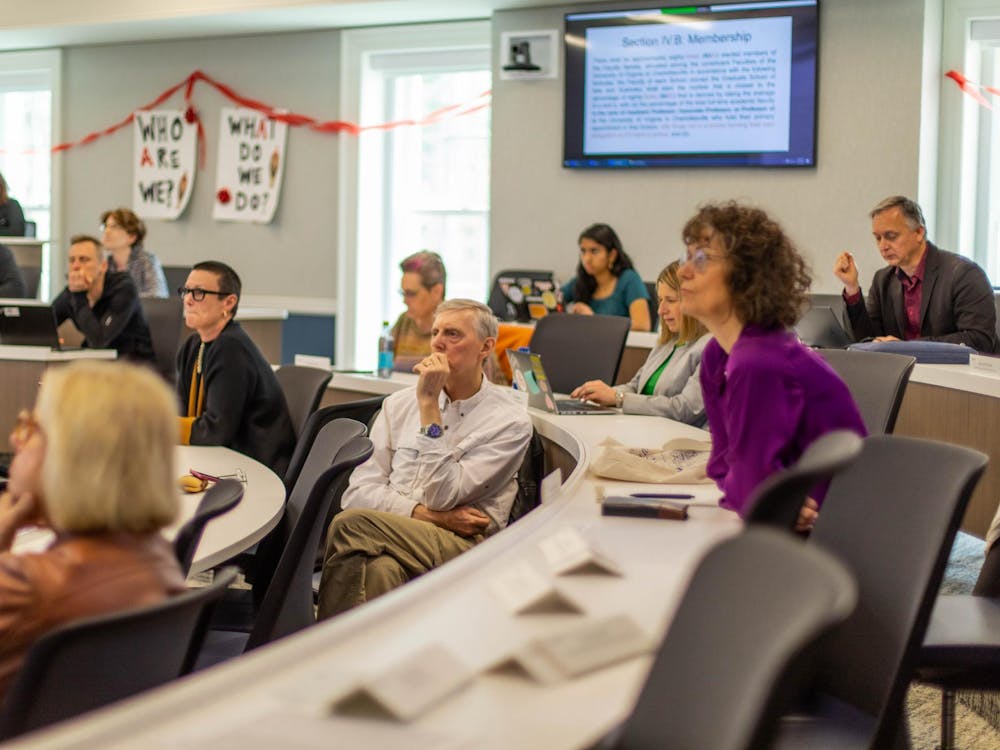Students identifying as Hispanic or Latinx compose 6 percent of the University student body, while less than 2 percent of the University’s faculty identify in the same way. In the College, there are a total of 24 teaching or research faculty members identifying as Hispanic or Latinx — nine of whom teach in the language department. At the University as a whole, there are a total of 80 teaching and research faculty members identifying as Hispanic or Latinx.
Some students have said the lack of representation among Hispanic-Latinx faculty at the University is discouraging.
“Increasing recruitment efforts of Hispanic/Latinx representation amongst faculty and administrative staff is a powerful message to Latinx students that they belong here too,” a recently-released open letter to the community reads. The letter, released Monday at the end of Hispanic Heritage Month, has been signed by members of several Hispanic and Latinx groups, as well as members of the University community at-large.
Alex Cintron, a fourth-year College student and Student Council president, said he supports efforts to increase hiring of diverse faculty at U.Va. — noting that mentorship and representation should be among the University’s priorities when searching for new professors.
“Representation, for all the classic reasons, is a good thing for us as minorities to see ourselves in positions of responsibility in the future,” Cintron said in an email to The Cavalier Daily. “If a Latinx student can have a Latinx faculty member, then that increases the odds that they will be more likely to envision themselves being a professor in the future.”
In an interview, Kayla Dunn, a third-year College student and Latinx Student Alliance president, emphasized the importance of academic role models, particularly for minority students.
“I think it's a lot easier to see yourself at a certain place in life or at a certain position when there’s someone in that role who you can resonate with,” Dunn said.
Vicki Gist, the director of Multicultural Student Services, agreed about the importance of representation as well.
“There is significant research to show that representation matters,” Gist said. “For members of groups that have been historically disenfranchised or marginalized, having mentors and role models with whom they identify results in higher educational aspirations, better grades, retention, persistence, and overall satisfaction with university life.”
The lack of faculty representation poses other logistical challenges for certain students. For instance, Dunn said, Latinx and Hispanic groups can struggle to find faculty to advise them — a resource often available to special status organizations around Grounds. She added that Multicultural Student Services has a limited staff to the detriment of the community.
“Having more faculty to assist and support the Hispanic/Latinx community and its affiliated organization would be extremely helpful,” Dunn said.
Assoc. Spanish Prof. Ricardo Padrón said he recognizes that the importance of mentors for students identifying as Latinx or Hispanic.
“I think Latinx students bring, just like any group, particular concerns, particular perspectives, particular backgrounds, and they would be well served by faculty who … know what’s going on with Latinx students and who could mentor them in ways that maybe a non-Latinx person could not,” Padrón said in an interview.
Many students hope the University will consider student input when hiring diverse faculty in the years to come.
“I think, since hiring is based largely on department chairs, that academic departments, when they are hiring new faculty, they should try to gather input from students … in a more systematic way than is being done now,” Cintron said.
Maite Brandt-Pearce, the vice provost for faculty affairs and a professor of electrical engineering, said in an email statement to The Cavalier Daily that the University supports the hiring of qualified professionals from all communities.
“Increasing the diversity of our faculty is essential to achieve the University’s aspirations,” Brandt-Pearce said. “In collaboration with other units, the Provost’s office is taking active steps to increase faculty diversity through updated and improved search processes, innovative training, and programs that create a welcoming and engaging climate. We believe that a diverse, engaged faculty is critical to deliver excellent research, teaching and patient care.”
Padrón said he would like to see to see more professors who identify as Latinx and Hispanic in positions outside the language department.
“The interesting thing is not to have Latinx faculty in the Spanish department where you would expect them but to have them across the board — in the sciences, the social sciences and the arts,” Padrón said. “And of course that’s where you only get a sprinkling of people here and there.”
Dunn said she sees significant advantages associated with having a diverse faculty and hopes the University can see the value of diverse individuals teaching all students in every academic area.
“You want people from diverse backgrounds teaching your students because you want your students to be global citizens — to have a wide perspective of the world, an open mind and to be tolerable to all people,” Dunn said. “Having a more diverse faculty and more Hispanic-Latinx faculty benefits everybody, not just our community.”

This article is part of a series published in The Cavalier Daily this week looking at the experiences of Latinx/Hispanic students at U.Va. and elements of a recently-published open letter addressed to the University community.
The full series:







